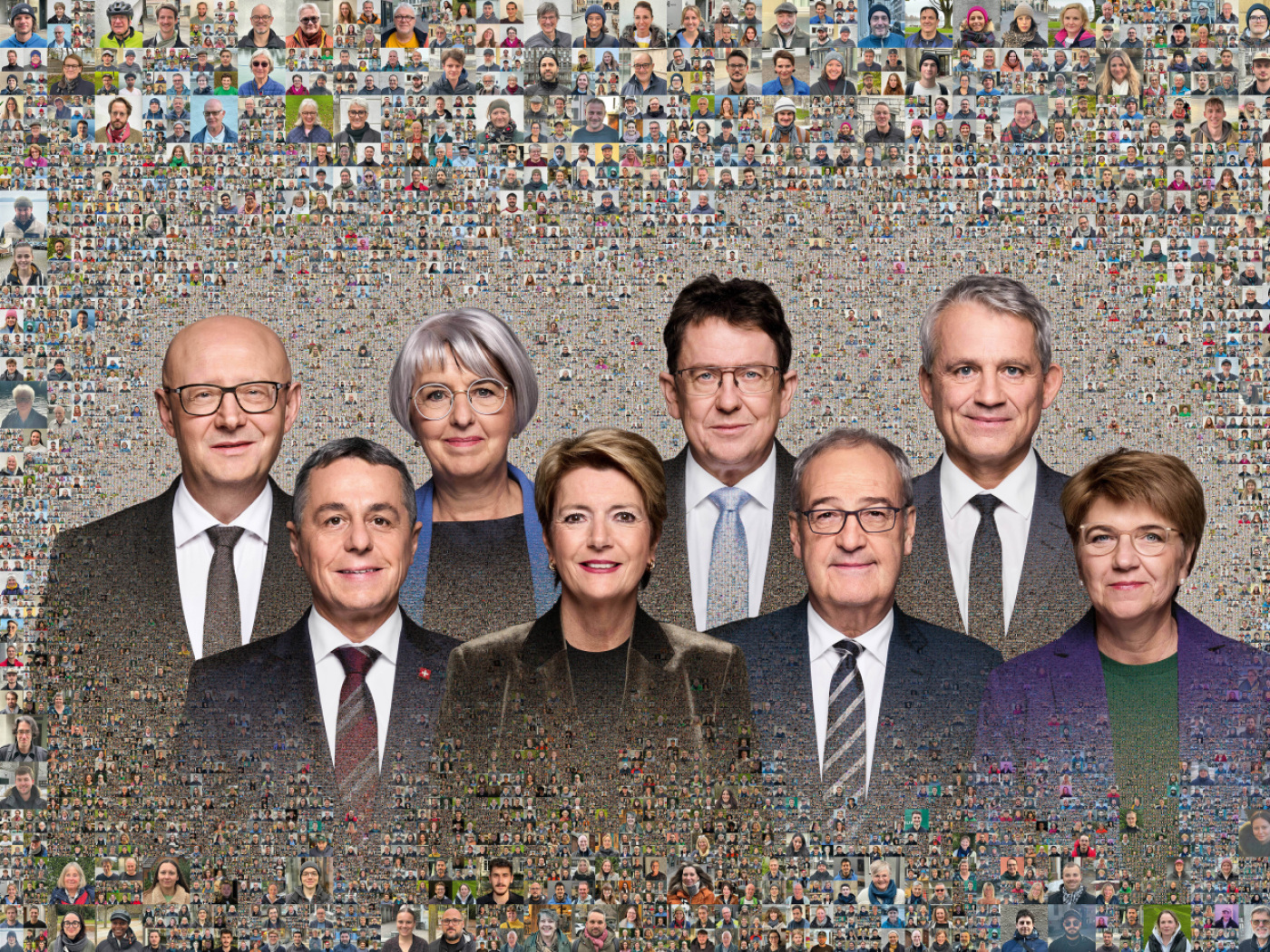Survey predicts ‘sovereign money’ initiative will fail

A sweeping reform of Switzerland’s monetary system, proposed by a group of economists, financial specialists and entrepreneurs, is unlikely to win a majority in a nationwide vote on June 10.
The so-called ‘sovereign money’ initiative has the backing of just 35% of respondents, according to survey carried out by the leading GfS Bern research and polling institute on behalf of the Swiss Broadcasting Corporation seven weeks ahead of the vote. For more details see graphic below.
“Supporters may have valid arguments in favour of the initiative, but the approval rate is too low at the start of the campaign to turn things around in time for the vote,” said Martina Mousson, a political scientist and project leader at the research institute.
The initiative aims at limiting the scope of commercial banks while boosting the role of the Swiss National Bank (SNB) in creating money. Supporters argue the reform of the country’s monetary system would restore stability to Switzerland’s financial marketplace and prevent the emergence of financial bubbles.
But the proposal is opposed by parliament, the government, all main political parties and organisations, saying it is too risky for Switzerland to pioneer a monetary system that has not been tested elsewhere in the world.
Switzerland risks being plunged into an “unnecessary and dangerous experiment” if it adopts the scheme on June 10, Swiss National Bank Chairman Thomas Jordan warned on Thursday.
The pollsters found the initiative could possibly win backing from respondents close to left- and right-wing parties as well as among protest voters.
Mousson felt the issue was rather complex and primarily of interest to experts, who have been arguing about technical terms and the possible consequences of the initiative.
“Immediate pressure on Swiss banks is off. The situation has changed compared with the financial crisis ten years ago,” she said.

More
Sovereign Money initiative in a nutshell
Pollsters found that younger citizens and people with low incomes and low-skilled jobs tend to be more in favour of the initiative than other social groups. There is also a gap between the main German-speaking and French- and Italian-language regions of the country.
“Not everybody has formed his or her opinion yet, but the promoters of the initiative lag behind decisively,” Mousson commented.
Gambling law: Not ‘all in’
Meanwhile, supporters of changes to the gambling law – a second issue to come to a nationwide vote next month – have a 13-percentage point lead, according to the pollsters.
Parliament approved the reform last year, but several youth wings of centre-right and rightwing parties collected enough signatures to challenge the decision to a referendum. They are especially critical of a ban on providers of online gambling, based outside Switzerland.
Pollsters interviewed 1,201 Swiss citizens from all language regions across the country for the first of two nationwide surveys.
Swiss expatriates are not included in the poll for data protection reasons.
The telephone interviews, both with fixed line and mobile phone users, took place from April 16-26.
The margin of error is 2.9%.
The survey was commissioned by the Swiss Broadcasting Corporation (SBC), swissinfo.ch’s parent company, and carried out by the leading GfS Bern research and polling institute.
The latest poll shows that support for the law comes from women, citizens in the French- and Italian-language regions, the older generation and people who generally trust the authorities.
Lukas Golder, co-director of the GfS Bern institute, acknowledged that there is considerable opposition within many of the main political parties as well as the business community. As a result, the campaign committee has been struggling to present a united position in the past few weeks.
“There is potential for a protest vote, no doubt,” he said.
Nevertheless, Golder is confident that the supporters of the legal amendment will keep the upper hand.
He said proponents could rely on the support of sports and cultural groups, as well as cantonal authorities and beneficiaries of the state old age and disability insurance scheme.
They all receive parts of the winnings of lotteries and licenced casinos and fear that opening up online gambling to foreign providers could deprive them of millions of francs in revenue.
“So far, the opponents have focused too heavily on a sole argument. This is the state interfering and blocking free access to certain internet sites,” Golder said.
Based on the results of the first GfS Bern survey and short of a highly emotional campaign with a broader catalogue of arguments, opponents may be struggling to win a majority, he continued.
Golder said it might prove to be too difficult to convince citizens of the importance of more competition for Swiss casinos and lotteries in a liberalised market.

More
Are all campaign messages based on fact? Tell us what we should check

In compliance with the JTI standards
More: SWI swissinfo.ch certified by the Journalism Trust Initiative




















You can find an overview of ongoing debates with our journalists here . Please join us!
If you want to start a conversation about a topic raised in this article or want to report factual errors, email us at english@swissinfo.ch.